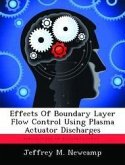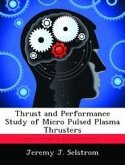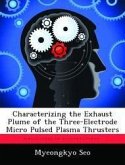An experiment on the effects of a pulsed DC plasma actuator on a separated flow in a low speed wind tunnel was conducted. The actuator consisted of two asymmetric copper electrodes oriented normal to the flow separated by a dielectric barrier and mounted on a flat plate in the center of the tunnel. A contoured insert was constructed and used to create an adverse pressure gradient in the test section comparable to a Pak-B low pressure turbine blade distribution. Suction was applied from the upper wall to induce separation along the flat plate over the electrodes. The DC power supply was kept constant at 8.5 kV and power was regulated through a high voltage fast transistor switch. The pulse width of the switch remained at 250 ns with the frequency ranging from 25 to 100 Hz. All studies were conducted at a Reynolds number of 30,000 to simulate takeoff and other low speed conditions. It was found that the DC pulsed plasma actuator could reattach the flow but not consistently at these conditions. Furthermore no evidence was found to indicate that coherent vortical structures are responsible for reenergizing the boundary layer and controlling separation.
Hinweis: Dieser Artikel kann nur an eine deutsche Lieferadresse ausgeliefert werden.
Hinweis: Dieser Artikel kann nur an eine deutsche Lieferadresse ausgeliefert werden.








